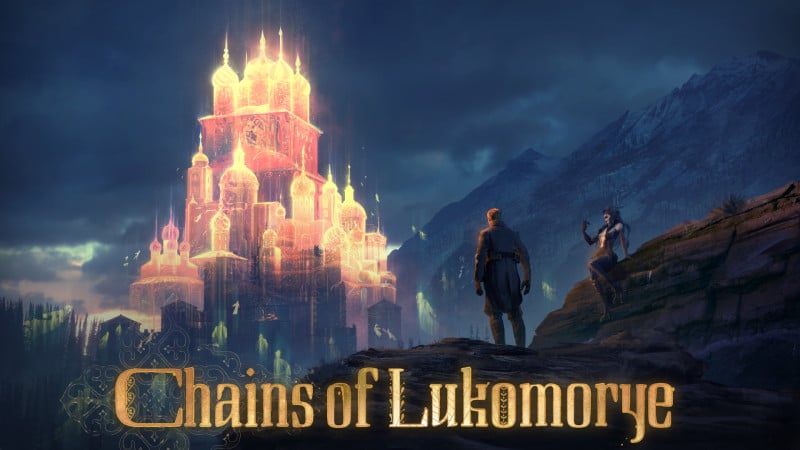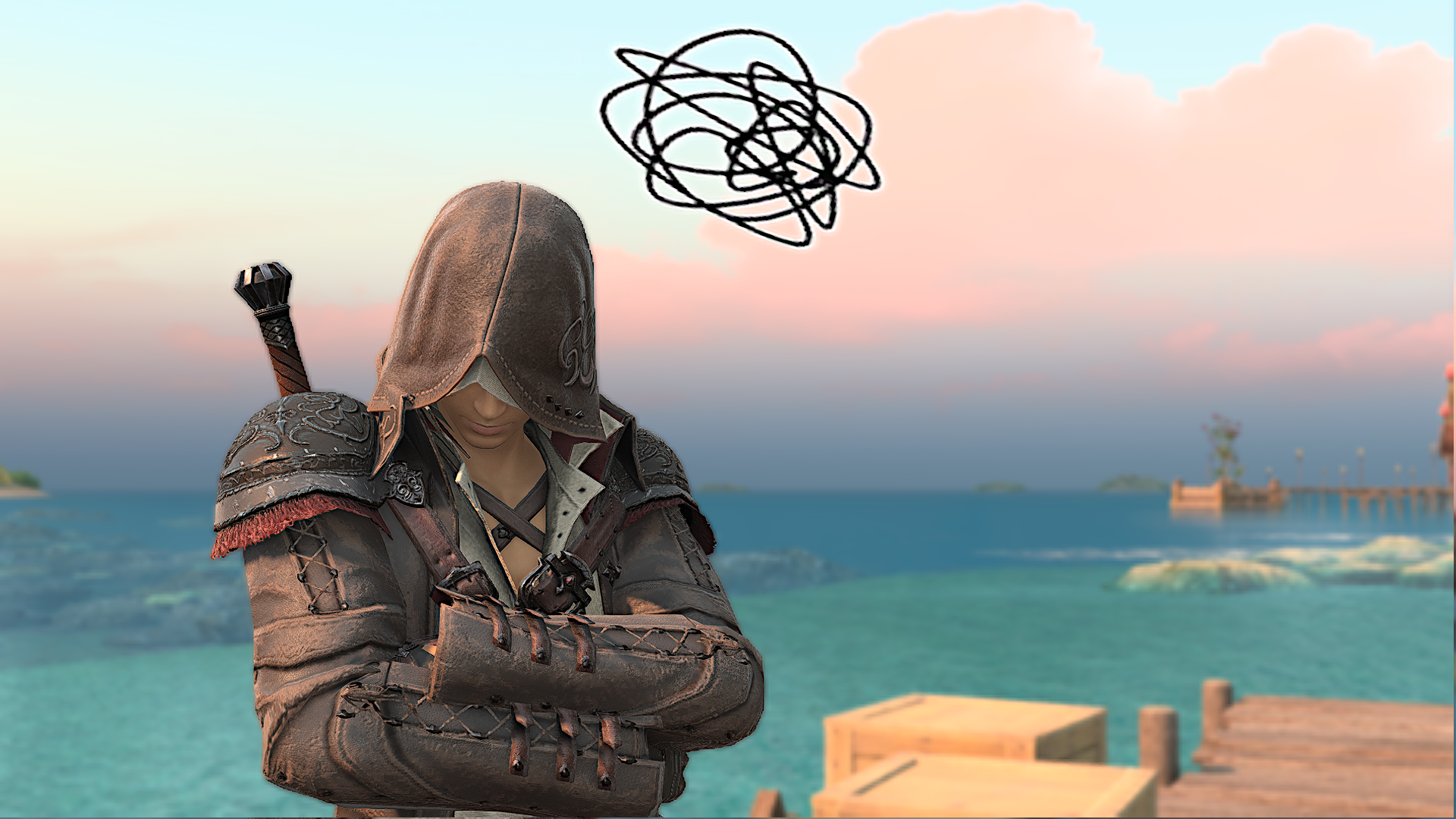
After nearly five years since its stunning announcement trailer, we’re now just one month away from the launch of Atomic Heart, the strictly single-player first-person shooter that thrusts you into an alternate history Soviet setting and tasks you with taking on an army of angry androids. The good news is that after going hands-on with the first couple of hours of a near final build of the game, this bolshevik BioShock seems as though it could well be worth the wait – its superpowered combat, fascinating story and spectacular setting all appear to be clicking seamlessly into place to form a cohesive whole, blinking into vibrant life like one of its many deadly assembly line creations.
The opening moments of Atomic Heart’s reportedly 25-hour campaign takes you from the sun-kissed streets of Chelomey City floating high among the clouds, all the way down to the shadowy subterranean depths of the ruined Vavilov facility, where a violent robot uprising has wiped out almost all human workers. Weapons and skills are doled out fairly slowly in this initial stretch, and with only a fireman’s axe and limited shells for my shotgun I found myself favouring stealth wherever possible – so it’s just as well that the earliest upgrades you unlock are the abilities to track enemies through walls and shock the Dandelion surveillance cameras in order to avoid alarm-raising detection.
On the occasion that I did alert a guard to my presence, the stiff challenge presented by Atomic Heart’s early enemy types came as a bit of a shock to my system (or indeed, a system shock if you’d prefer). These resilient terminator types ignore cover in favour of making a beeline to deliver you a beatdown, and even if you manage to circle-strafe and dash in order to create some distance they’re still liable to open up their animatronic maws and blast hot laser death in your direction. I must admit to perishing a few times early on as I got to grips with the rhythms of the weighty melee combat system, but that struggle grew into a sense of satisfaction as I unlocked alternate attacks and gradually became more capable of turning these robot Russkis into sparking shards of Soviet scrap.
I gradually became more capable of turning these robot Russkis into sparking shards of Soviet scrap.
As I explored deeper into the darkened corners of Atomic Heart’s first facility I was pleasantly surprised by numerous examples of intelligent design. Rummaging through corpses and cabinets for ammo and crafting materials is a cumbersome yet necessary evil in most other first-person shooters, so being able to swiftly vacuum up a room’s worth of items with a wave of your AI-enhanced glove like you’re sucking up gold coins from a level in Luigi’s Mansion is a welcome timesaver. That’s not to say you aren’t still rewarded for taking your time to pore over every inch of your surroundings, and I enjoyed the occasional optional diversions like pausing to watch Soviet spins on Looney Tunes cartoons on the in-game televisions or making prank calls in a public phone booth.
Robot Rock
Of course if you’re going to fill your game with mechanical maniacs then you’re going to need a soundtrack that’s equally heavy with metal, and as a big Doom fan I was delighted when composer Mick Gordon’s signature detuned guitars and double-kicked drums surged through the speakers to accompany a boss fight against a hulking robot wrecking ball that pinballed around the arena like an over caffeinated Chain Chomp. Gordon’s ability to masterfully pair headbanging riffs with headshots like some sort of first-person shooter sommelier is not to be understated, and Atomic Heart’s more intense action sequences are made all the more invigorating as a result of his involvement.
While I couldn’t get enough of the heavy metal shredding that accompanied the shredding of heavy metal, I’m yet to be completely won over by Atomic Heart’s mouthy main star. Agent P-3’s quips aim for action hero-style swagger but come across as something closer to the repetitive trash-talking of a fourteen-year-old Fortnite fan, and given Atomic Heart appropriates so much from the likes of Half-Life 2, BioShock and Doom, at times I did find myself wishing it had poached one of their silent protagonists while it was at it.
I was at least entertained by a number of the more friendly robots I encountered – although the constant dirty talk and double entendres from NORA, the surprisingly horny weapons vendor typically found near Atomic Heart’s save points – had me wondering if it was actually possible to report an AI to HR. She seems like a particularly sleazy sort of Siri, and signs off on every transaction with a flirtatious remark like, “I can’t wait for your strong hands to grasp my interface with lustful abandon!”
There’s also a slight concern that the wide open spaces in between Atomic Heart’s five main facilities may be lacking in interesting things to discover. While I definitely enjoyed testing out my electro-shock and force-slam abilities on groups of patrolling sentries, and then frantically scrambling to take down the repair robots before they could resurrect their tin can comrades, I couldn’t help but notice that my surroundings were seemingly populated by the the same handful of farmhouses and drivable vehicles in the short amount of time I spent exploring one corner of the overworld. This is in contrast to the opening of the game in Chelomey City, which looks dense with unique detail but can only be experienced in a very linear fashion.
That said, even if the open world area does primarily serve as a place to blast robotic hordes to bits in order to farm for spare parts to craft weapon upgrades with, it seems like there will be enough creativity contained within Atomic Heart’s main facilities to sustain the adventure, from underground labs with bodies of water suspended in air that you can swim through in order to quickly evade attackers, and various puzzle rooms to neatly take advantage of your growing suite of glove-based powers. My short time with Atomic Heart definitely left me with my curiosity piqued and my pulse racing, and if it can sustain its intrigue and ingenuity for the full length of its journey it could be something very special indeed.
Tristan Ogilvie is a video producer in IGN’s Sydney office. He’s never fought any machines in real life, although he did once have a tense altercation with a robot bartender in Tokyo. He almost never tweets here.





